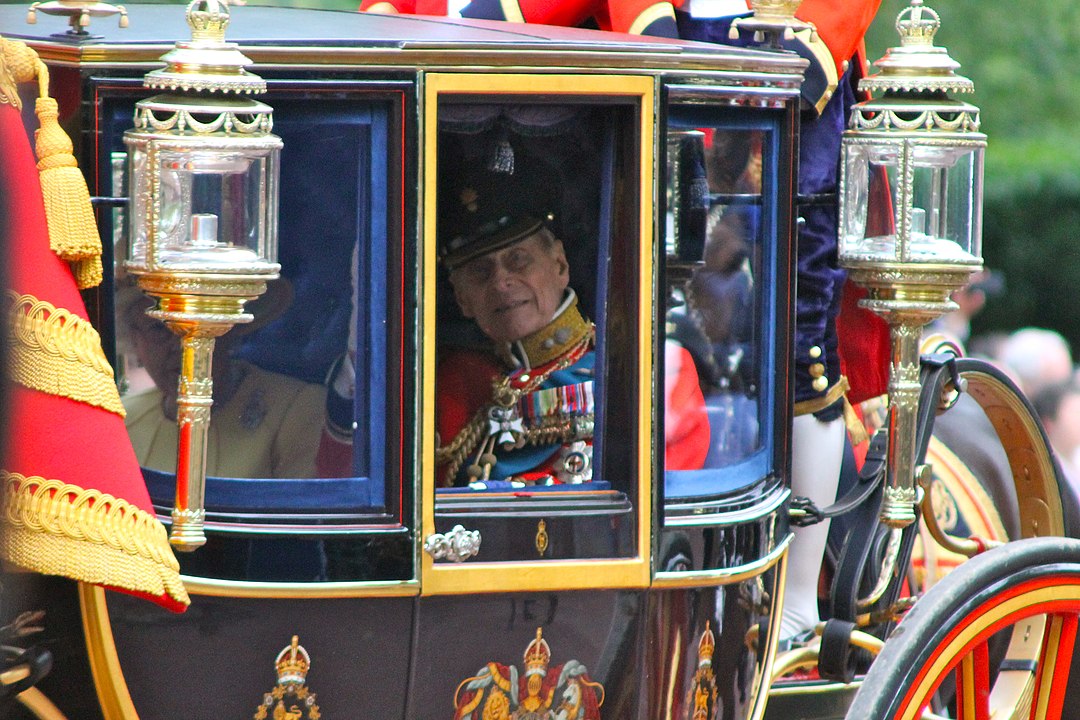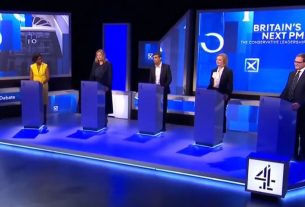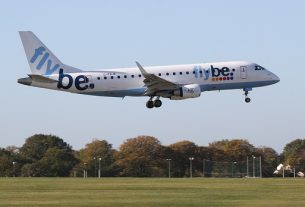Political campaigning for the May 6 elections has been paused following the death of the Duke of Edinburgh, Prince Philip, aged 99.
Parliaments in London, Belfast, Cardiff and Edinburgh have been called back from their Easter recess to pay tribute on Monday to the Duke whose death was confirmed by Buckingham Palace at noon on Friday, April 9 – the 16th wedding anniversary of Charles and Camilla.
A statement from the palace said: “It is with deep sorrow that Her Majesty The Queen announces the death of her beloved husband, His Royal Highness Prince Philip, Duke of Edinburgh.
“His Royal Highness passed away peacefully this morning at Windsor Castle. The Royal Family join with people around the world in mourning his loss.”
The Duke was admitted to London’s King Edward VII hospital on February 16 and underwent a month of treatment before he was discharged on March 16. He would have celebrated his 100th birthday in June.
The Duke of Edinburgh was the longest serving royal consort in British history who the Queen described as “my strength and stay all these years”.
The Telegraph reports “it is thought the Queen was her husband’s bedside when he died at Windsor Castle”.
Funeral will be affected by pandemic
In line with his wishes, there will not be a state funeral for the Duke who also will not be lying-in-state, confirmed the College of Arms.
The British public are “regretfully” requested not to attend, reports the BBC, “due to the pandemic”. The Independent reports coronavirus “will have a major impact” on the funeral as “military processions and tradition of lying in state are abandoned due to lockdown restrictions.”
Prince Philip will lie at rest at Windsor Castle before a royal ceremonial funeral at St George’s Chapel – scene of Prince Harry and Meghan Markle’s wedding in May 2018. Ten former sovereigns are buried in St George’s Chapel, including King George VI, the Queen’s father. Buckingham Palace will announce the funeral details for the Duke.
An online book of condolences has been made available at the royal website from which a “selection of messages will be passed onto members of the Royal Family, and may be held in the Royal Archives for posterity.”
State funerals are normally limited to sovereigns and only occasionally extended to exceptionally distinguished persons. Royal ceremonial funerals are “granted by the sovereign to members of the royal family who hold high military rank, consorts of the sovereign and those deemed appropriate.”
The College of Arms’ flag flying instructions
The College of Arms was founded in 1484 and is the official heraldic authority maintaining “official registers of coats of arms pedigrees.” It is made up of ‘heralds’ – members of the Royal Household acting under Crown Authority. The College is the authority for matters relating to flying flags and among its roles is involvement in UK state ceremonials, assisting “the Earl Marshal in the organization of state ceremonies including Coronations and State Funerals.”
It is “partly financed by the official fees that are payable upon grants of arms” and individual Officers of Arms receive nominal salaries – less than £50 per annum – paid by the Crown, “but conduct their professional practices on a self-employed basis.”
The College of Arms has instructed all official flags, including the Union Flag, to fly at half mast until 8am on the day after the Duke’s funeral. “Any non-official flags flying or due to be flown should be taken down and replaced with a Union Flag flying at half-mast.”
The only exception, the College states, “is when The Queen is present within a building or its precincts, at which time the Royal Standard will be flown at full mast.”
Flags “should be clean and in a state of good repair” and should be raised to the top of the pole “and then lowered to a point two-thirds of the way up, with a least the height of the flag between the top of the flag and the top of the flagpole.”
Lord Chamberlain’s Office and the Garter King of Arms
It is reminded that flags flying on government buildings do so according to the Lord Chamberlain’s Office which “produces definitive guidelines on the use of the Royal Arms, Royal Devices, Emblems and Titles and of photographs, portraits, engravings, effigies and busts of The Queen and Members of the Royal Family.” The office is also responsible for organizing the Queen’s programme, including “ceremonial activity or public facing events”, ranging from “garden parties and state visits, to royal weddings and the State Opening of Parliament.”
The Lord Chamberlain’s Office’s decisions on flag flying are administered by the Department for Digital, Culture, Media and Sport (DCMS), subject to the prime minister’s instructions and “the advice and guidance of Garter King of Arms”, who is the highest ranking king of arms in the College of Arms.
The Welsh and Scottish governments will issue their flag flying instructions while the Northern Ireland Office “will issue instructions for buildings covered by the Flags Regulations (Northern Ireland) 2000.”
Flag flying in general is subject to planning laws requiring planning consent, unless they fall into certain categories.




